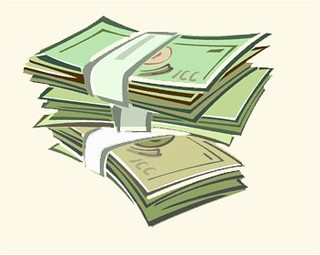Helsinki On a Dime
"After years of subsisting on a marine’s pay, from which he occasionally sent money to his mother,
he undertakes a trip to Russia with a capital of $1,600. How could he have put aside this nest egg?
After years of low factory remuneration in the Soviet Union, he wants to return to the United States and,
in a letter to his mother, estimates the cost at $800. He borrows $435.71 from the United States Embassy in Moscow but,
mirabile dictu, he repays the loan between October, 1962, and January, 1963, during which time he was unemployed
for several weeks and worked for a time as an unskilled developer of photostatic prints."
from "Oswald and the FBI"Harold Feldman, The Nation
Jan. 27th 1964++++++++++++++++++++++++++++++++++++++++++++++++++++
Marguerite Oswald | Testimony
Feb 11, 1964
There was a question of how could Lee save up $1600 to travel to Russia.
Rankin walks into the topic with a loaded question.
Marguerite is quick to correct him, she did not think he was able to save this much,
and must have had some assistance. She makes this point very clear.
She is not convinced Lee had this money, or the ability to raise this money himselfMr. RANKIN.
He had quite a little money saved, didn't he, from the Marines? [leading and on the record]Mrs. OSWALD. I will tell you about this--please, gentlemen, I will have to break if you don't.
This is a very, very serious life that I have gone through.
I didn't answer Lee. This is the way I do the children.
The CHAIRMAN. We will take a 10 minute recess now.
(Brief recess.)
The CHAIRMAN. The Commission will be in order. Mr. Rankin, you may continue.
Mrs. OSWALD. Mr. Rankin, you mentioned about the $1,600.
Now, I don't know if you know for a fact that Lee had $1,600.
It was publicized in the paper that he had $1,600, which is right here in 1959.
Mr. RANKIN. Did he tell you anything about that at the time?
Mrs. OSWALD. No, sir, he gave me $100. And he and his brother Robert had arrived.
And I am assuming it was over me, because Robert did not help me.
And I have made that public in the Red Cross papers, that he had a family of their own,
that they probably thought their duty was to their family. I had no help from the other two boys.
And he gave me $100, and I stayed in this little place a few weeks,
and then I got the job for $5 a week. And that is Lee's defection.
So here is my only contact with Lee in Russia, at the Metropole Hotel--this is dated December 18, 1959.
Now, I have settled with the insurance company, and I have a little money.
So I sent a check to Lee for $20. And this is his little note.
The only contact I had with Lee from the time of his immediate defection until
the State Department 2 years later informed me of my son's address. And this is his little note that he needs money.
So I would say that Lee didn't have $1,600, according to this proof.
Now, we are speculating, as you will admit, because you thought the letter to the school was from me.
And you will have to admit that I have given you new evidence.
And so maybe Lee didn't have $1,600, because he is asking for money there.
That is when he is right in Moscow.
Mr. RANKIN. Of course, that is quite a while later.
Mrs. OSWALD. No, sir. He defected the end of November. This is December 1959.
Mr. RANKIN. But he----
Mrs. OSWALD. He had to make passage, and have some money. I don't know if it took $1,600.
I do not know, sir. But I am saying 5 weeks later he needs money. We haven't gotten to this file yet.
I will quote from a newspaper, the Star Telegram, 1959, his defection, by Mrs. Aline Mosby,
who interviewed Lee in Moscow. It says here, "I saw my mother always as a worker,
always with less than we could use, he said. He insisted his childhood was happy despite his poverty."
We had a very happy family. He insisted--this is the story in 1959. Lee had a normal childhood.
And now he is criticizing the United States. He says, "Many things bothered him in the United States.
Race discrimination, harsh treatment of underdog, Communists and hate."
Then on the other letter he is going to Russia to write a book. And there is another story and another story.
And all kind of stories. So what are we to believe, gentlemen. Is he throwing us off the track because he is an agent.
We are talking about speculation and newspaper papers. and so on. And we know when he came back that he did go to Mrs. Bates,
a Fort Worth stenographer, and talked about the Soviet Union. She made it public. And he only had $10.
And he did not finish that story. And she said he was very nervous. And he did not say he was an agent.
But she got the impression that he was an agent. This has been made public in the Star Telegram--if you do not have that, I do.